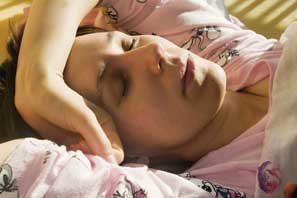|
|
|||
|
Sleep Apnea by Marie Pollack Learn 5 steps for
what you can do
to help this condition
|
|
||
|
FREE Natural Weight Loss
Program recommended by The Share Guide
|
Some 30 million Americans are victims of a sleep disorder called sleep apnea sickness or in other terms obstructive sleep apnea, sleep apnea or central sleep apnea. Numerous others are predisposed and have a high risk of developing the sickness. Adult males have the highest odds at about 50/50 that their breathing is not normal when they are sleeping. It is very important that anyone who might be experiencing this problem, is predisposed, or knows someone they care about who has this sickness, should have a clear and concise understanding about it. Sleep apnea occurs in all age groups and both sexes but is more common in men. (It may be under diagnosed in women.) It has been estimated that as many as 18 million Americans have sleep apnea. Four percent of middle-aged men and two percent of middle-aged women have sleep apnea along with excessive daytime sleepiness. People most likely to have or develop sleep apnea include those who snore loudly and also are overweight, or have high blood pressure, or have some physical abnormality in the nose, throat, or other parts of the upper airway. Sleep apnea sickness seems to run in some families, suggesting a possible genetic basis. Fatigue and tiredness during the day is one symptom of sleep apnea. Another symptom is loud snoring; if the loud snoring is repeatedly punctuated by brief periods of silence or choking sounds, the individual is certain to have obstructive sleep apnea. Sleep apnea sickness may already have affected you more than you know. Chances are things will improve for you once the diagnosis is made. If your sleep problem can be solved simply--by not using alcohol or sleep medicine, losing weight if you're overweight, and sleeping on your side--you will quickly begin to feel much more rested and energetic. If your situation is severe and you need surgery, you'll be able to sleep better afterwards. Whatever your treatment, remember that you are not alone and help is available. Sleep Apnea can be a very serious matter. It is a potentially life-threatening condition that requires immediate medical attention. The risks of undiagnosed obstructive sleep apnea include heart attacks, strokes, impotence, irregular heartbeat, high blood pressure, and heart disease. In addition, obstructive sleep apnea causes daytime sleepiness that can result in accidents, lost productivity, and interpersonal relationship problems. The severity of the symptoms may be mild, moderate, or severe. For many sleep apnea patients, their bed partners or family members are the first ones to suspect that something is wrong, usually from their heavy snoring and apparent struggle to breathe. Coworkers or friends of the sleep apnea victim may notice that the individual falls asleep during the day at inappropriate times (such as while driving a car, working, or talking). During the apneic event, the person is unable to breathe in oxygen and to exhale carbon dioxide, resulting in low levels of oxygen and increased levels of carbon dioxide in the blood. The reduction in oxygen and increase in carbon dioxide alert the brain to resume breathing and cause an arousal. With each arousal, a signal is sent from the brain to the upper airway muscles to open the airway; breathing is resumed, often with a loud snort or gasp. Frequent arousals, although necessary for breathing to restart, prevent the patient from getting enough restorative, deep sleep. Related Sleep Apnea Symptoms Can Include: * Loud snoring * Restless sleep--the repeated struggle to breathe can be associated with a great deal of movement * Depressed mood and/or irritability * Nocturnal snorting, gasping, choking (may wake self up) * Rapid weight gain * Reduced sex drive and impotence * High blood pressure * Frequent nocturnal urination * Confusion upon awakening and/or difficulty concentrating * Morning headaches * Insomnia and/or sleep that is not refreshing * A dry mouth upon awakening * Excessive perspiring during sleep * Heartburn For many cases of sleep apnea sickness, treatment often consists of avoiding sleeping on one's back, even if you're wearing a mask. To help aid in a comfortable sleep choose a pillow that allows you to sleep on your side, one that elevates your head and neck, allowing your airway passage to open properly while sleeping. Using a sleep apnea pillow is an unconventional but beneficial and inexpensive sleep apnea treatment. If you suspect that you or someone you love is suffering from sleep apnea, please consult a qualified medical practitioner as soon as possible. 5 Steps to Help with Sleep Apnea The following steps are what you can do to help this condition and sleep better: 1) Stop all use of alcohol or sleep medicines as they relax the muscles in the back of the throat, making it harder for you to breathe. 2) Sleep on your side instead of your back. 3) Find a high quality side sleeper pillow for maximum comfort 4) If you are overweight, try to slim down. 5) If you still have problems, you should see your doctor. There is a special mask that you can wear over your nose and mouth while you are sleeping. It is available by prescription only. This mask is called a "continuous positive airway pressure" or CPAP. It will keep your airway open by adding pressure to the air you breathe. The mask helps most people with sleep apnea. Surgery may be necessary, in a very few cases, to remove extra tissue or tonsils from the throat. Reprinted from www.articles-galore.com Related Info: Dreams & Meditation: Your Freeway to Enlightenment WIFI: Friend or Foe? Understanding Neurofeedback Feeling Fat, Fuzzy or Frazzled? Electromagnetic Fields and Your Immune System The Hazards of Household Cleaning Products Natural Weight Loss Program recommended by The Share Guide: learn more MORE
HEALTH ARTICLES Home Shop |
||
|
|
|||
|
|
|
||

